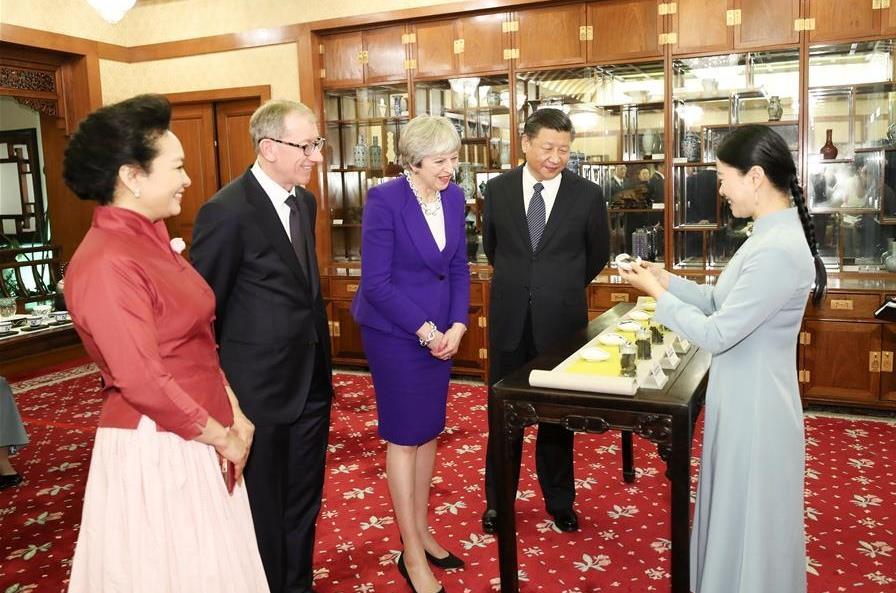May's China visit a dose of golden sunshine through protectionist haze

Chinese President Xi Jinping (2nd R) and his wife Peng Liyuan (1st L), and visiting British Prime Minister Theresa May and her husband Philip May, have an afternoon tea in Beijing, capital of China, February 1, 2018.
British Prime Minister Theresa May's first official visit to China has affirmed that both countries will seek stronger partnership in free trade and in tackling global challenges, sending a vital message of upholding openness and unity in a fractured world.
May's three-day trip, which ends on Friday, came at a time of rising populism, nationalism and protectionism across the globe. The world needs a clearer compass to guide its path forward.
At last week's annual World Economic Forum gathering in the snowy Swiss town of Davos, US President Donald Trump chanted again about putting "America First."
For most nations, that means more protectionist measures against its trading partners. Free traders worldwide are deeply concerned.
Across the Atlantic, if Brexit is dealt with properly, a "Global Britain" may turn out to be a more open player, looking beyond traditional partners like the European Union and the United States and forging a profoundly new partnership with China in the interests of both.
Chinese President Xi Jinping, while meeting with May in Beijing, called on the two sides to forge an enhanced version of the "Golden Era" for bilateral ties.
May, on her part, said Britain is a defender of free trade and is ready to cooperate with China on multiple fronts and intensify coordination on major global and regional issues.
"Golden fruits" are already in sight with a dozen deals worth about 9 billion pounds (about US$12.8 billion) signed in such areas as Belt and Road cooperation, finance, innovation, agriculture and technology during May's trip.
In a major outcome, China Development Bank and Standard Chartered Bank inked a deal worth 10 billion yuan (US$1.6 billion) to facilitate projects under the China-proposed Belt and Road Initiative.
The message is clear. In the face of a worrying rise in protectionism, China and Britain, two of world's major economies, remain at the forefront of safeguarding openness and free trade.
The China-Britain relationship has been considered an exemplar for China-West ties in terms of putting aside differences and seeking the largest possible common ground. And the two countries have even more to explore and achieve.
They can make more efforts to dovetail strategies, enhance cooperation in the areas of finance, nuclear energy and investment, and explore cooperation in new areas such as artificial intelligence, green energy, the digital economy and sharing economy.
China and Britain, which stands at the far western end of the ancient Silk Road routes, can enjoy broader, deeper and higher-level cooperation within the framework of the Belt and Road Initiative, with even more open attitude from the British side.
The open, transparent, inclusive and mutually beneficial initiative serves to further enhance global connectivity and offers greater possibilities. The China-Britain freight express train is just a telling example.
In a world that needs stronger confidence to dispel the dark clouds of protectionist concerns, May's China visit is one precious ray of sunshine.















